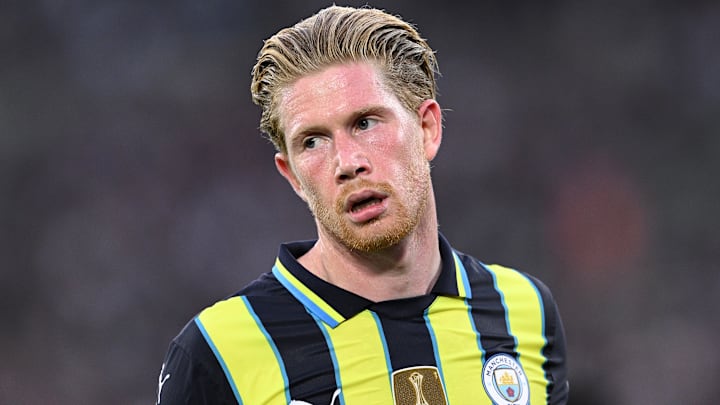The Premier League, which is the world's richest and most competitive soccer league, never fails to amaze its fans in relation to money. Where there is money involved, there are definitely salaries that can keep the mouth of anyone agape. The latest ranking of the highest-paid stars, according to talkSPORT, has again proven what many people might have suspected, as Kevin De Bruyne still leads the pack at an incredible £400,000 per week. But what does that mean for the actual sport?
Follow Playing for 90 on X (Twitter).
Weight of Money in the Premier League
Doubtless, the Premier League is the richest league in the world. With a billion-dollar deal on television and genuinely money-making machine clubs, this is reflected in the wages of the players. Manchester City brains Kevin De Bruyne proves this fact for a reason. He is the highest-paid footballer in the league, getting over £400,000/week, with Erling Haaland close in second place, at £375,000/week.
But was this salary worth it? To the clubs, it would appear so. De Bruyne, with his vision and difference-making attributes, is one of the most influential players in the world. He has been an absolute colossus at Manchester City, and the club leaves no stone unturned to keep him happy-or more importantly, out of the reach of potential predators. It's the same in the case of Haaland, too- the expectations were high when he joined City, and he delivered so far.
Casemiro: The Brazilian Among Giants
Star-studded is this list, and there comes one Brazilian in that. Casemiro is his name. Casemiro, a midfielder for Manchester United, takes home £350,000 per week, sharing the third position in the salary rankings along with Liverpool's Mohamed Salah.
His transfer to Manchester United was signed with the hope of firming up a midfield that has been pretty much questioned over these years. However, he is yet to replicate the success that made him one of the best at his position when at Real Madrid. Many fans wish Casemiro will become the key player in the Red Devils' setup. His salary, on the other hand, is sky-high, valued as an investment which does not seem to fully pay off.

The Haaland Effect: Setting a New Market Standard
The arrival of Erling Haaland at Manchester City shook the nets and did the same thing to the club's coffers. This young Norwegian forward proved very capable of establishing himself as a goal-scoring machine, thus justifying each cent of his £375,000 weekly paycheck. The truth is, he has not only raised the bar in the game for City but also redefined the transfer and salary market in the Premier League.
Numbers are astronomical, and the question goes on: just how far will this go? The market is becoming inflated more and more, and with players like the arrival of Haaland setting a new benchmark for negotiations. If a 23-year-old can earn this type of money, what's stopping any other emerging talents from demanding something similar? More importantly, how will even the richest clubs sustain these salaries in the long term?
The Impact on Soccer's Future
These wages raise a number of questions about the future of soccer: where does all that money go, how does that affect the competitiveness of the league, and more importantly, what does that mean to lower divisions and the development of young players?
Salaries like De Bruyne's, Haaland's among others definitely help attract the best talents towards the Premier League, which in turn helps the league keep its position as the most-watched and cash-earning league in the world. Still, that concentration of wealth can also increase the gulf between the elite club and the rest.
The Premier League implements financial fair play to save clubs from falling into financial traps. It stipulates that the profitability and sustainability rules allow each club to make a maximum loss of £105 million over three years. In November, Everton were deducted 10 points in the league standings for a financial rules breach, the severest punishment ever laid on any club in the league's history.
The "Galáctico" Culture in England?
These astronomical wages also feed into the "Galáctico" culture where clubs spend fortunes to sign and retain stars. This practice, made famous by Real Madrid in the early 2000s, has now spread to the Premier League. According to the financial fair play of the league, if a club has sound revenue, then there shouldn't be major issues.
But there's a danger with all of this, of course. If one focuses on superstars, then that unfortunately means teams may rely too heavily on those few players. And when these particular stars happen to be out of form or injured, then the teams are in a difficult position. Another consequence emanates from the pressure such players find themselves under. With big wages come big expectations, and any mistake that is made will likely be magnified by media and fans alike.
